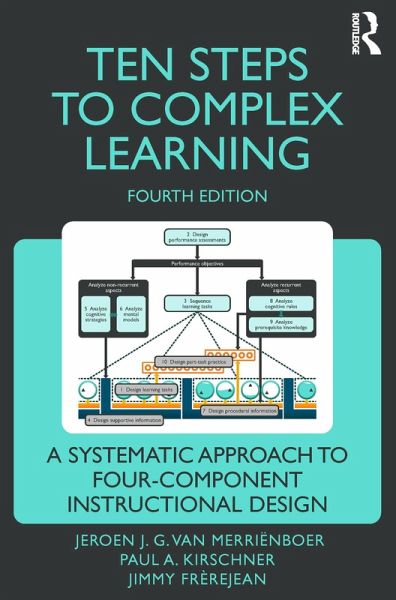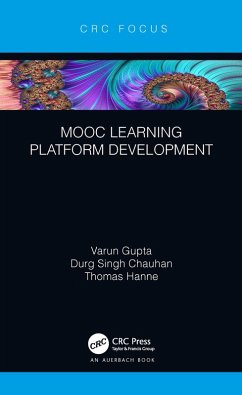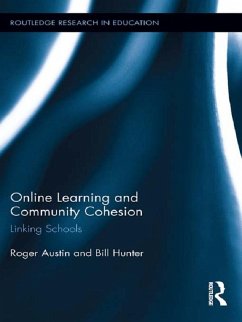
Ten Steps to Complex Learning (eBook, PDF)
A Systematic Approach to Four-Component Instructional Design
Versandkostenfrei!
Sofort per Download lieferbar
36,95 €
inkl. MwSt.
Weitere Ausgaben:

PAYBACK Punkte
18 °P sammeln!
Ten Steps to Complex Learning presents a path from an educational problem to a solution in a way that students, design practitioners, and researchers can understand and easily use. Students in the fields of instructional design and the learning sciences can use this book to broaden their knowledge of the design of training programs for complex learning. Practitioners can use this book as a reference guide to support their design of courses, curricula, or environments for complex learning.Driven by the acclaimed Four-Component Instructional Design (4C/ID) model, this fourth edition of Ten Steps...
Ten Steps to Complex Learning presents a path from an educational problem to a solution in a way that students, design practitioners, and researchers can understand and easily use. Students in the fields of instructional design and the learning sciences can use this book to broaden their knowledge of the design of training programs for complex learning. Practitioners can use this book as a reference guide to support their design of courses, curricula, or environments for complex learning.
Driven by the acclaimed Four-Component Instructional Design (4C/ID) model, this fourth edition of Ten Steps to Complex Learning is fully revised with the latest research, featuring over 50 new references. The entire book has been updated for clarity, incorporating new colorful graphics and diagrams, and the guiding example used throughout the book is replaced with a training blueprint for the complex skill of "producing video content." The closing chapter explores the future development of the Ten Steps, discussing changes in teacher roles and the influence of artificial intelligence.
Driven by the acclaimed Four-Component Instructional Design (4C/ID) model, this fourth edition of Ten Steps to Complex Learning is fully revised with the latest research, featuring over 50 new references. The entire book has been updated for clarity, incorporating new colorful graphics and diagrams, and the guiding example used throughout the book is replaced with a training blueprint for the complex skill of "producing video content." The closing chapter explores the future development of the Ten Steps, discussing changes in teacher roles and the influence of artificial intelligence.
Dieser Download kann aus rechtlichen Gründen nur mit Rechnungsadresse in A, B, BG, CY, CZ, D, DK, EW, E, FIN, F, GR, HR, H, IRL, I, LT, L, LR, M, NL, PL, P, R, S, SLO, SK ausgeliefert werden.













